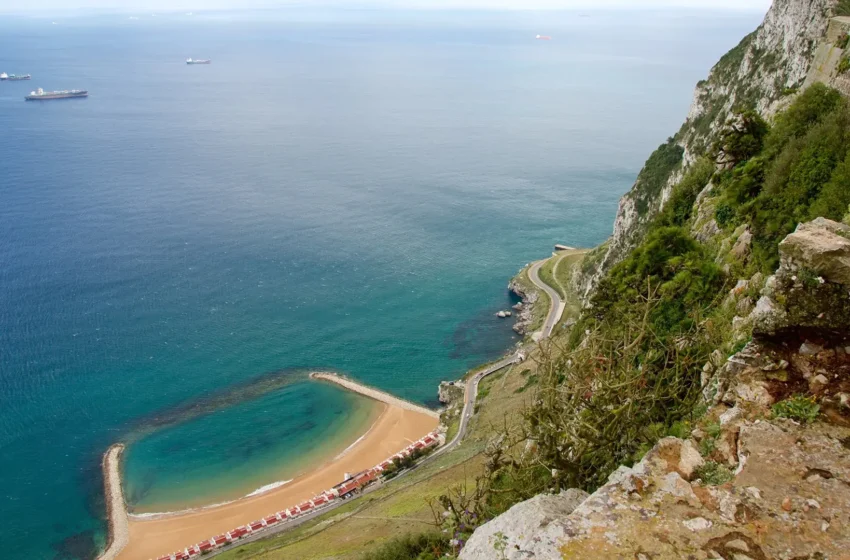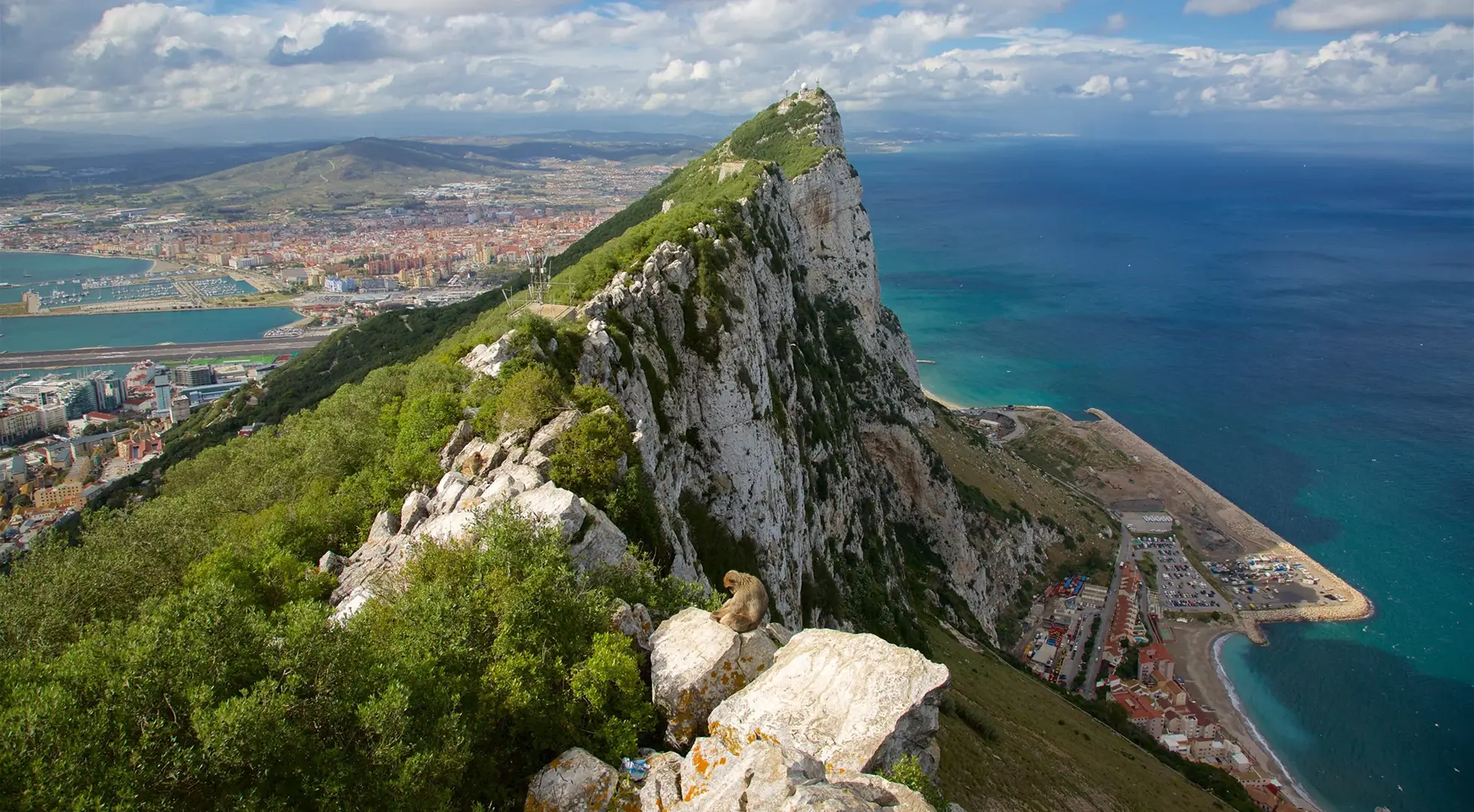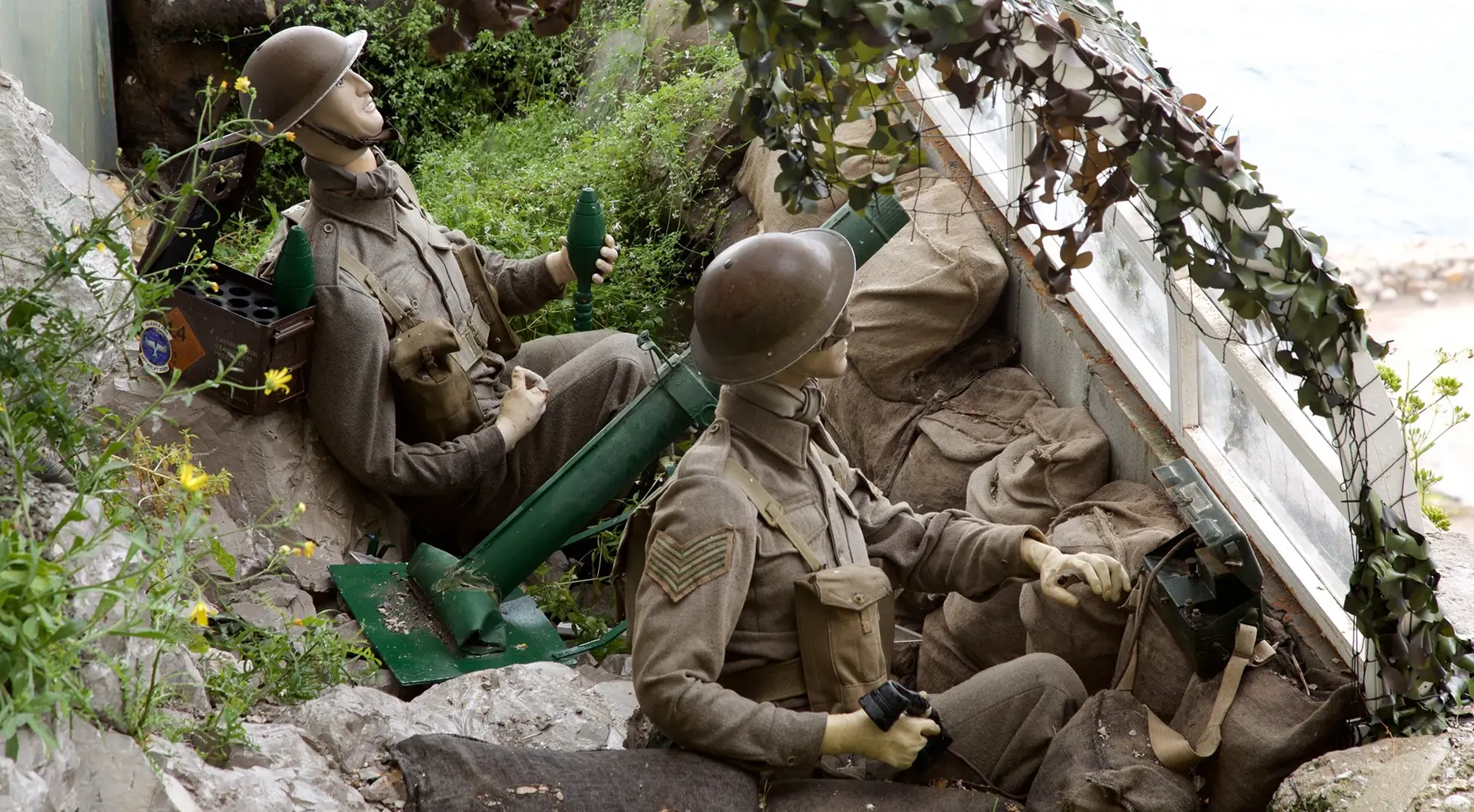Gibraltar: British overseas territory – history, culture and everything you need to know

Gibraltar (Image: Expedia)
Perched at the southern tip of the Iberian Peninsula, where the Atlantic crashes into the Mediterranean, stands Gibraltar – a sentinel of limestone, shrouded in myth and steeped in history. For centuries, this small yet strategically vital territory has been inextricably linked to the United Kingdom, a bond forged in conflict, sustained by a shared identity, and often debated on the international stage. To understand Gibraltar’s unique status as a British Overseas Territory, one must journey back through the annals of time, tracing the threads that have woven its destiny with that of the distant island nation.
The Dawn of British Rule: From Siege to Sovereignty
The story of British Gibraltar truly begins in the tumultuous early 18th century. The War of the Spanish Succession raged across Europe, a continent-wide struggle for power and influence. In 1704, an Anglo-Dutch fleet, under the command of Admiral Sir George Rooke, seized Gibraltar from Spain. This was not initially intended as a permanent conquest, but rather a strategic move within the broader conflict. However, the Rock’s formidable defenses and its commanding position at the gateway to the Mediterranean quickly revealed its immense value.
The Treaty of Utrecht, signed in 1713, formally ended the War of the Spanish Succession. It was within this landmark agreement that Spain, battered and weary, ceded Gibraltar to Great Britain “to be held and enjoyed absolutely with all manner of right for ever, without any exception or impediment whatsoever.” This wasn’t merely a transfer of land; it was a foundational moment, solidifying British sovereignty over the Rock and laying the groundwork for a relationship that would endure for over 300 years.
Spain’s regret was almost immediate and palpable. Throughout the 18th century, Gibraltar faced numerous sieges, most notably the Great Siege of 1779-1783, a prolonged and brutal attempt by Spanish and French forces to reclaim the territory. Yet, against overwhelming odds, the British garrison, bolstered by the resilience of the local population, held fast. These acts of defiance against superior forces cemented a sense of shared purpose and unwavering loyalty between the Gibraltarians and their British protectors. The sieges, far from breaking the bond, forged it in the crucible of shared sacrifice.

A Fortress and a Home: The Victorian Era and Beyond
As the British Empire expanded and its naval power grew, Gibraltar’s strategic importance only intensified. It became a vital coaling station, a naval base, and a linchpin in Britain’s control of global shipping lanes, particularly with the opening of the Suez Canal in 1869. The Rock became a symbol of British might, its iconic silhouette instantly recognizable.
But Gibraltar was more than just a military outpost; it was a burgeoning community. Over centuries, a unique Gibraltarian identity began to coalesce, a vibrant blend of Genoese, Spanish, Portuguese, Maltese, and Jewish influences, all living under the British flag. English became the official language, but Llanito, a unique vernacular blending Andalusian Spanish with English and other Mediterranean languages, thrived in the streets, a testament to the cultural melting pot that Gibraltar had become.
The Gibraltarians, or “Llanitos” as they affectionately call themselves, consistently demonstrated their desire to remain British. Referendums held in 1967 and 2002 saw overwhelming majorities vote to remain part of the United Kingdom, a clear expression of self-determination in the face of ongoing Spanish claims to sovereignty. This fervent loyalty stems not just from historical ties, but from a deeply ingrained appreciation for the freedoms, democratic principles, and legal framework provided by the British system.
A Distinct Culture, A British Heart
Gibraltar’s culture is a fascinating tapestry. Stroll through Main Street, and you’ll hear the distinct tones of Llanito interwoven with English. Red phone boxes and pillar boxes stand as familiar sentinels against a backdrop of Mediterranean sunshine. Fish and chips sit comfortably alongside tapas and pasta dishes on restaurant menus. The legal system, education, and public institutions largely mirror those of the UK, offering a sense of familiarity and stability.
Yet, Gibraltar also boasts its own unique traditions and spirit. The annual National Day, celebrated on September 10th, is a vibrant display of Gibraltarian pride, with red and white colours adorning every corner of the Rock. The Barbary Macaques, Europe’s only wild monkeys, roam freely, adding to the territory’s distinct charm and serving as a quirky symbol of its independent spirit.

The Modern Relationship: Challenges and Continuity
In recent decades, Gibraltar’s relationship with the UK has continued to evolve. While the core of British sovereignty remains unquestioned by the Gibraltarians, the complexities of the modern world have brought new challenges. Brexit, in particular, presented a significant hurdle, as Gibraltar’s economy is heavily reliant on its fluidity with Spain. However, both the UK and Gibraltar have worked diligently to navigate these complexities, seeking agreements that preserve economic ties and safeguard the daily lives of those living and working on the Rock.
The UK provides defence and foreign affairs for Gibraltar, and the territory maintains a high degree of internal self-governance. While there are ongoing dialogues with Spain about issues of shared interest, the fundamental position of Gibraltar as a British Overseas Territory, with the unwavering support of its people, remains resolute.
In essence, Gibraltar is a living testament to a unique historical journey. It is a place where British traditions blend seamlessly with Mediterranean flair, where a small community has fiercely guarded its identity and its right to self-determination. The Rock stands not just as a strategic outpost, but as a vibrant home, its British heart beating strong at the very edge of Europe, a testament to a bond forged in history and cherished by its people.

